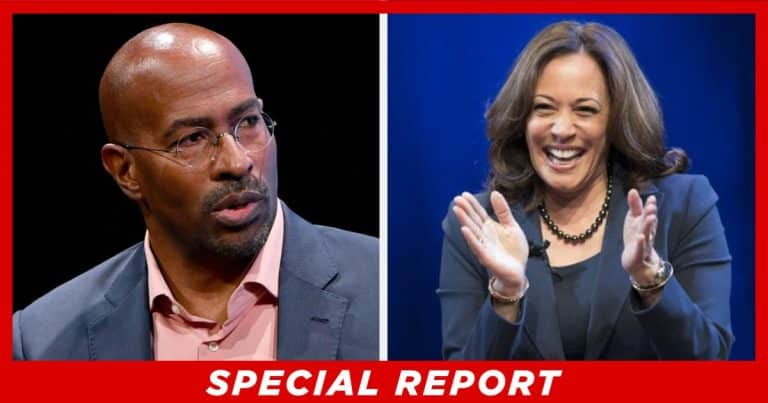
In politics, timing is everything, and Kamala Harris just hit a sour note. Now that she’s officially the Democrats’ 2024 nominee, everyone has been eagerly waiting to see who she’d pick as her running mate.
It’s no small decision—her choice would need to appeal to a broad spectrum of voters while energizing the party’s base. But her recent decision has left many scratching their heads if not outright fuming.
Harris had the option to pick Governor Josh Shapiro of Pennsylvania, a strong, moderate leader who could appeal to swing voters in crucial states. However, the far left quickly criticized Shapiro for being “too Jewish,” a shockingly offensive and narrow-minded critique in this day and age. Instead, Harris caved and chose Governor Tim Walz, a move that’s sparked controversy and anger from all corners of the political spectrum.
The Liberal Concern
The frustration isn’t just coming from conservatives. Even liberal commentators are expressing major concerns about what this means for the Democratic Party. Walz is a very liberal governor, which might please some of the party’s base, but it also signals a troubling appeasement to the far-left factions that have increasingly exerted influence within the party.
From X:
Van Jones admits that Kamala picking Walz was her “caving in to some of these darker parts in the party” in terms of appeasing “anti-Jewish bigots” that have “gotten marbled into this party.”
Van Jones admits that Kamala picking Walz was her "caving in to some of these darker parts in the party" in terms of appeasing "anti-Jewish bigots" that have "gotten marbled into this party." pic.twitter.com/UTspmYkFfF
— Nicholas Fondacaro (@NickFondacaro) August 6, 2024
Van Jones, a CNN commentator and well-known liberal voice, didn’t mince words. He pointed out the obvious: Harris’ choice seems to be more about appeasing anti-Jewish sentiments than about picking the best candidate for the job. This is not just troubling; it’s a dangerous precedent.
A Troubling Trend
This isn’t the first time the Democrats have shown a willingness to bend to the far-left’s whims, but it might be the most blatant example yet. In recent years, we’ve seen the party shift further and further left, often at the expense of common sense and broader appeal. The moderate voices within the party are being drowned out by those who demand extreme and often impractical policies.
Kamala Harris, in her desperate bid to unify the party, has ended up dividing it further. Instead of choosing a candidate who could help bridge the gap between moderates and progressives, she’s chosen to cater to the most radical elements. This move could cost her dearly in the general election, where appealing to the middle is key.
The Far-Left’s Influence
The far-left’s influence within the Democratic Party has been growing for years, but Harris’ decision to pick Walz seems to be a tipping point. The anti-Jewish bigotry that Van Jones mentioned isn’t just a fringe belief; it’s becoming increasingly mainstream within certain Democratic circles. This is not only deeply troubling for the party but also for the country as a whole.
By caving to these extremists, Harris has shown a stunning lack of leadership and courage. Instead of standing up to bigotry and choosing a running mate who could unite the party and the country, she’s chosen to pander to the worst elements within her base.
Political Fallout
The political fallout from this decision is already starting to show. Moderate Democrats are disheartened, and many are openly questioning whether they can support a ticket that so blatantly panders to bigotry. Independents, who are crucial for any general election victory, are also likely to be turned off by Harris’ choice.
The Republicans, meanwhile, are having a field day. They’ve already begun to paint Harris and Walz as radicals who are out of touch with mainstream America. This narrative is likely to stick, especially given the already growing concerns about the Democrats’ shift to the left.
Former President Trump and his campaign are reportedly rejoicing. They’ve been quick to seize on Harris’ controversial decision, framing it as yet another example of the Democrats’ extremism. Trump, never one to miss an opportunity, has already begun to use this to rally his base and attract disaffected moderates and independents.
What This Means for 2024
The 2024 election was always going to be a contentious one, but Harris’ VP pick has upped the ante considerably. Instead of a measured, strategic choice, she’s made a decision that could alienate vast swaths of voters. This move could very well cost her the election, and the Democrats will have no one to blame but themselves.
In politics, as in life, you’re often judged by the company you keep. By choosing Walz, Harris has shown her true colors, and they’re not pretty. This decision will haunt her campaign and could very well be the nail in the coffin for the Democrats in 2024.
Kamala Harris’ decision to pick Tim Walz as her running mate is a clear sign of the Democratic Party’s troubling direction. Instead of standing up to bigotry, she’s chosen to appease it, and the political fallout will be severe.
The Republicans are rejoicing, moderates are disheartened, and the far-left is celebrating. This decision will have far-reaching consequences, and not just for the 2024 election. It’s a sad day for the Democratic Party and for America.
Source: X
